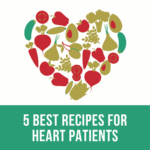As we age, our nutritional needs evolve, requiring a more focused approach to maintain optimal health and well-being. Proper nutrition plays a crucial role in supporting healthy ageing by providing essential nutrients that help combat age-related issues. This article will delve into the changing nutritional needs as we age, highlight key nutrients that support healthy ageing, offer tips for maintaining a balanced diet, and address common age-related concerns.
Understanding Changing Nutritional Needs
As we grow older, several factors influence our nutritional requirements:
- Decreased Metabolism: Metabolic rate tends to slow down with age, leading to a decrease in calorie needs. However, the need for certain nutrients may increase.
- Muscle Mass Loss: Aging often results in a loss of muscle mass, emphasizing the importance of adequate protein intake to support muscle health.
- Bone Health: Bone density tends to decline with age, necessitating increased intake of calcium and vitamin D for optimal bone health.
- Digestive Changes: Digestive functions may change, affecting nutrient absorption. This highlights the need for nutrient-dense foods.
- Immune System: Aging can weaken the immune system, making antioxidants and immune-boosting nutrients crucial for overall health.
Also check: Label Reading – What Do Those Nutritional Facts Really Mean?
Key Nutrients for Healthy Ageing
Several nutrients play vital roles in promoting healthy ageing:
- Calcium and Vitamin D: Essential for bone health, calcium and vitamin D help prevent osteoporosis and fractures.
- Omega-3 Fatty Acids: Found in fish, flaxseeds, and walnuts, omega-3s support heart health and may reduce inflammation.
- Antioxidants: Vitamins C and E, along with selenium and beta-carotene, act as antioxidants, protecting cells from damage caused by free radicals.
- Protein: Crucial for muscle health and repair, lean protein sources like poultry, fish, legumes, and nuts are beneficial.
- Fiber: Supports digestive health, regulates blood sugar levels, and promotes satiety. Whole grains, fruits, and vegetables are excellent sources of fiber.
Also check: 10 Things You Need to Know About Nutritional Facts
Tips for Maintaining a Balanced Diet
To support healthy ageing, consider the following dietary tips:
- Eat a Variety of Foods: Incorporate a diverse range of fruits, vegetables, whole grains, lean proteins, and healthy fats into your meals.
- Stay Hydrated: Drink plenty of water throughout the day to maintain hydration and support overall health.
- Monitor Portion Sizes: Be mindful of portion sizes to avoid overeating, especially as calorie needs decrease.
- Limit Sugar and Sodium: Reduce intake of added sugars and sodium, opting for natural sweeteners and herbs/spices for flavor.
- Plan Nutrient-Dense Meals: Focus on nutrient-dense foods that provide essential vitamins, minerals, and antioxidants.
- Supplement Wisely: Consult with a healthcare provider about the need for supplements, especially for nutrients like vitamin B12, which may require supplementation for older adults.
Addressing Common Age-Related Concerns
Certain age-related concerns can be managed through dietary choices:
- Heart Health: Choose heart-healthy fats like avocados, olive oil, and nuts, and limit saturated and trans fats.
- Cognitive Function: Include foods rich in antioxidants, omega-3s, and vitamins E and B12 to support brain health.
- Digestive Health: Consume fiber-rich foods, probiotics (found in yogurt and fermented foods), and stay hydrated to support digestive function.
- Bone Health: Ensure adequate calcium and vitamin D intake through dairy products, leafy greens, fortified foods, and supplements if needed.
- Weight Management: Focus on nutrient-dense, lower-calorie foods to maintain a healthy weight and avoid excessive calorie intake.
Optimizing nutrition plays a vital role in supporting healthy ageing. By understanding changing nutritional needs, prioritizing key nutrients, following dietary tips, and addressing common age-related concerns, individuals can proactively promote their overall health and well-being as they age. Consultation with healthcare professionals and registered dietitians can provide personalized guidance for maintaining a balanced diet tailored to individual needs.






Leave a Reply